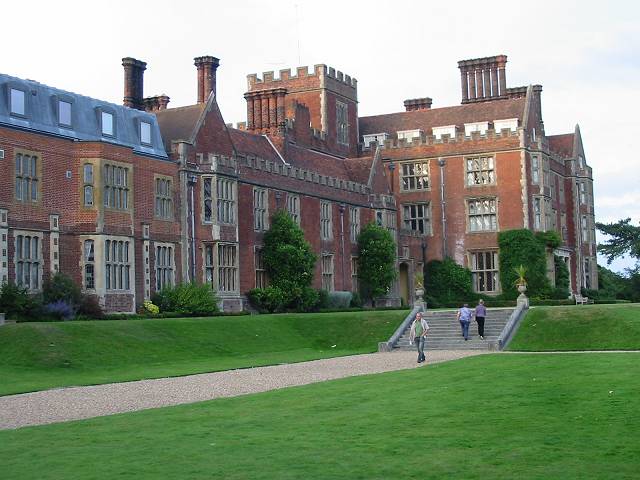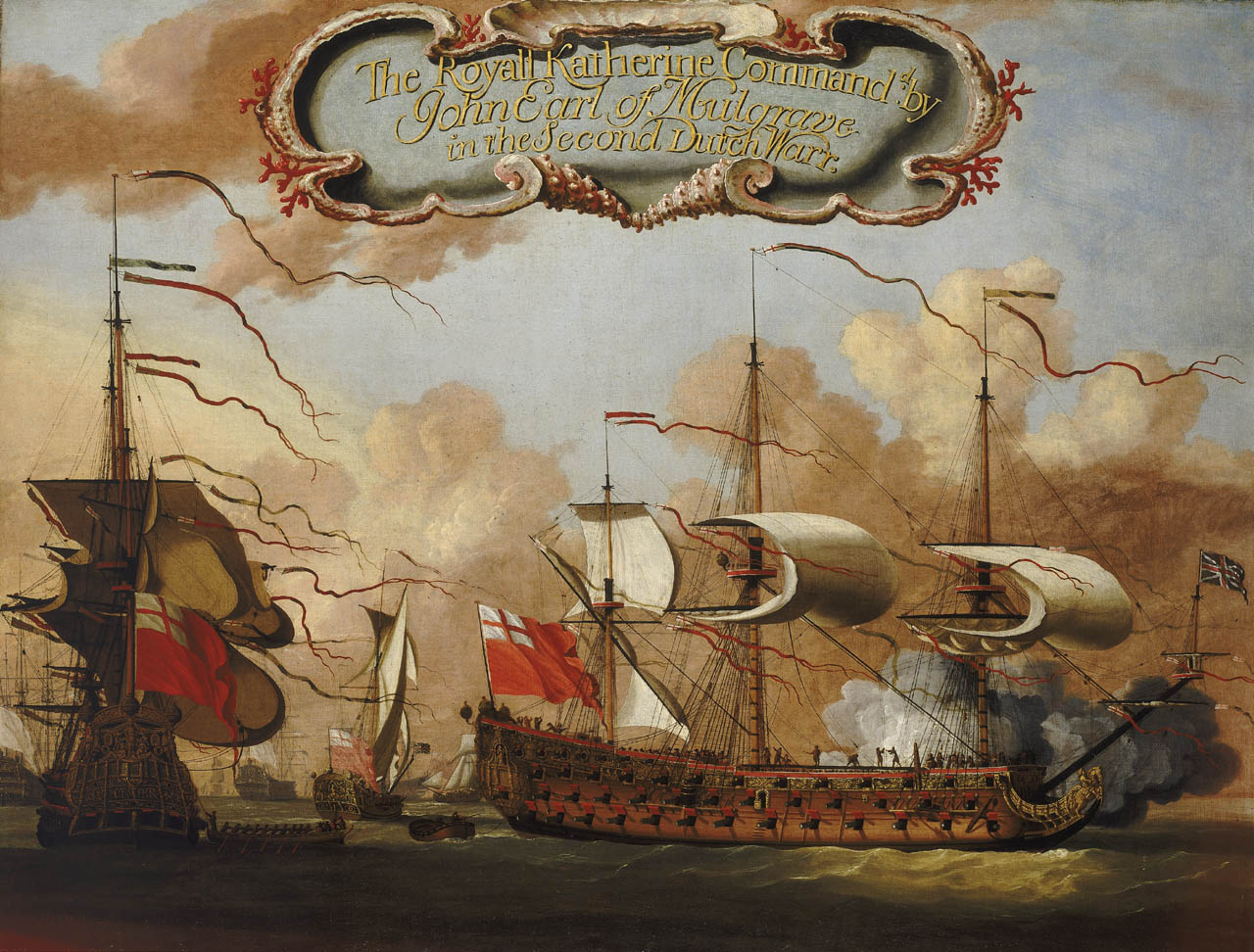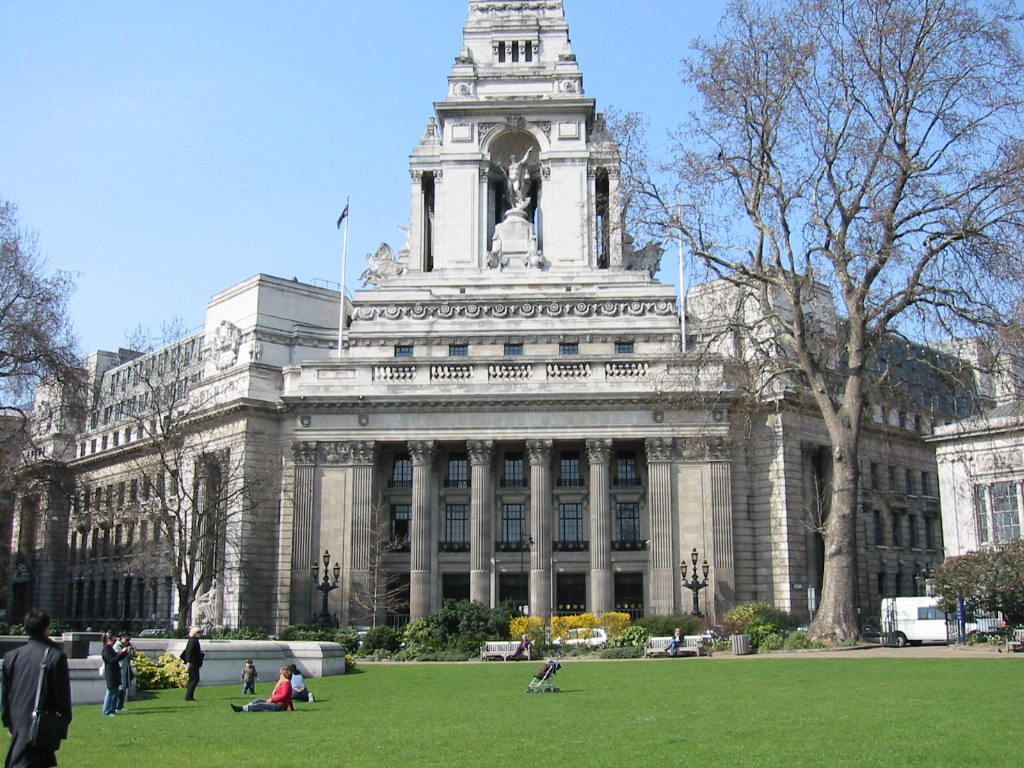|
John Norris (1702–1767)
John Norris (1702–1767) was a British customs official and politician who sat in the British House of Commons, House of Commons from 1727 to 1732. Early life Norris was baptized on 31 July 1702, the third, but eldest surviving son of John Norris (Royal Navy officer), Admiral Sir John Norris and his wife Elizabeth Aylmer, daughter of Admiral Matthew Aylmer, 1st Baron Aylmer, Matthew Aylmer. He married Judith Western, daughter of Robert Western on 13 January 1729. Politics At the 1727 British general election, Norris was returned unopposed as Member of Parliament for Rye (UK Parliament constituency), Rye on his father's interest. He voted regularly with the Opposition and spoke against the Government on the Address in January. 1729, and on the Hessians and Dunkirk, in February 1730. On 21 April 1730 he took the ministry by surprise by moving for an address to lay before the House any secret articles to the treaty of Seville, which resulted in a four hours’ debate His last ... [...More Info...] [...Related Items...] OR: [Wikipedia] [Google] [Baidu] |
British House Of Commons
The House of Commons is the lower house of the Parliament of the United Kingdom. Like the upper house, the House of Lords, it meets in the Palace of Westminster in London, England. The House of Commons is an elected body consisting of 650 members known as members of Parliament (MPs). MPs are elected to represent constituencies by the first-past-the-post system and hold their seats until Parliament is dissolved. The House of Commons of England started to evolve in the 13th and 14th centuries. In 1707 it became the House of Commons of Great Britain after the political union with Scotland, and from 1800 it also became the House of Commons for Ireland after the political union of Great Britain and Ireland. In 1922, the body became the House of Commons of the United Kingdom of Great Britain and Northern Ireland after the independence of the Irish Free State. Under the Parliament Acts 1911 and 1949, the Lords' power to reject legislation was reduced to a delaying power ... [...More Info...] [...Related Items...] OR: [Wikipedia] [Google] [Baidu] |
John Norris (Royal Navy Officer)
Admiral of the Fleet Sir John Norris (1670 or 167113 June 1749) was a Royal Navy officer and Whig politician. After serving as a junior officer during the Nine Years' War and the Williamite War in Ireland, he was given command of a squadron sent to North America to protect British settlements on the banks of Hudson Bay in 1697. Although he developed a plan to recapture some territories in Newfoundland and Labrador taken by French forces the previous winter, he was prevented from implementing that plan when the local council overruled him. Norris served under Admiral Sir George Rooke at the Battle of Cádiz at an early stage of the War of the Spanish Succession. He went on to command the vanguard at the Battle of Malaga in August 1704 and then served under Admiral the Earl of Peterborough at the capture of Barcelona in October 1705. As a flag officer, Norris was sent with a fleet to the Baltic Sea to support a coalition of naval forces from Russia, Denmark and Hanover taki ... [...More Info...] [...Related Items...] OR: [Wikipedia] [Google] [Baidu] |
Matthew Aylmer, 1st Baron Aylmer
Admiral of the Fleet Matthew Aylmer, 1st Baron Aylmer (ca. 1650 – 18 August 1720), of Covent Garden, Westminster, and Westcliffe, near Dover, was an Anglo-Irish Royal Navy officer and Whig politician who sat in the English and British House of Commons between 1695 and 1720. Aylmer was one of the captains who sent a letter to Prince William of Orange, who had just landed at Torbay, assuring the Prince of the captains' support; the Prince's response ultimately led to the Royal Navy switching allegiance to the Prince and the Glorious Revolution of November 1688. Aylmer saw action at the Battle of Bantry Bay in May 1689, at the Battle of Beachy Head in July 1690 and again at the Battle of Barfleur in May 1692 during the Nine Years' War. Aylmer became Commander-in-Chief of the Navy on 12 November 1709. However, when Aylmer met a French squadron and convoy, he was only able to capture one merchantman and the 56-gun ''Superbe'': the new Harley Ministry used this failure as an e ... [...More Info...] [...Related Items...] OR: [Wikipedia] [Google] [Baidu] |
The Main Building At Benenden School - Geograph
''The'' () is a grammatical article in English, denoting persons or things already mentioned, under discussion, implied or otherwise presumed familiar to listeners, readers, or speakers. It is the definite article in English. ''The'' is the most frequently used word in the English language; studies and analyses of texts have found it to account for seven percent of all printed English-language words. It is derived from gendered articles in Old English which combined in Middle English and now has a single form used with pronouns of any gender. The word can be used with both singular and plural nouns, and with a noun that starts with any letter. This is different from many other languages, which have different forms of the definite article for different genders or numbers. Pronunciation In most dialects, "the" is pronounced as (with the voiced dental fricative followed by a schwa) when followed by a consonant sound, and as (homophone of pronoun ''thee'') when followed by a ... [...More Info...] [...Related Items...] OR: [Wikipedia] [Google] [Baidu] |
1727 British General Election
The 1727 British general election returned members to serve in the House of Commons of the 7th Parliament of Great Britain to be summoned, after the merger of the Parliament of England and the Parliament of Scotland in 1707. The election was triggered by the death of King George I; at the time, it was the convention to hold new elections following the succession of a new monarch. The Tories, led in the House of Commons by William Wyndham, and under the direction of Bolingbroke, who had returned to the country in 1723 after being pardoned for his role in the Jacobite rising of 1715, lost further ground to the Whigs, rendering them ineffectual and largely irrelevant to practical politics. A group known as the Patriot Whigs, led by William Pulteney, who were disenchanted with Walpole's government and believed he was betraying Whig principles, had been formed prior to the election. Bolingbroke and Pulteney had not expected the next election to occur until 1729, and were consequent ... [...More Info...] [...Related Items...] OR: [Wikipedia] [Google] [Baidu] |
Member Of Parliament
A member of parliament (MP) is the representative in parliament of the people who live in their electoral district. In many countries with bicameral parliaments, this term refers only to members of the lower house since upper house members often have a different title. The terms congressman/congresswoman or deputy are equivalent terms used in other jurisdictions. The term parliamentarian is also sometimes used for members of parliament, but this may also be used to refer to unelected government officials with specific roles in a parliament and other expert advisers on parliamentary procedure such as the Senate Parliamentarian in the United States. The term is also used to the characteristic of performing the duties of a member of a legislature, for example: "The two party leaders often disagreed on issues, but both were excellent parliamentarians and cooperated to get many good things done." Members of parliament typically form parliamentary groups, sometimes called cauc ... [...More Info...] [...Related Items...] OR: [Wikipedia] [Google] [Baidu] |
Rye (UK Parliament Constituency)
Rye was a parliamentary constituency centred on the town of Rye in East Sussex. It returned two Members of Parliament to the House of Commons of the Parliament of the United Kingdom until its representation was halved under the Reform Act 1832. From the 1832 general election, Rye returned one Member of Parliament until its abolition for the 1950 general election, when the town of Rye itself was transferred to the redrawn Hastings constituency where it remained until 1955 when it returned to the re-created Rye seat. The constituency was re-created for the 1955 general election, and abolished again for the 1983 general election. Boundaries 1885–1918: The Municipal Boroughs of Hastings and Rye, the Sessional Divisions of Battle, Burwash, Frant, Hastings, and Rye, the ancient town of Winchelsea, and the Liberty of the Sluice and Petit Iham. 1918–1950: The Municipal Boroughs of Bexhill and Rye, the Urban District of Battle, the Rural Districts of Battle, Hastings, Rye, and ... [...More Info...] [...Related Items...] OR: [Wikipedia] [Google] [Baidu] |
Port Of London
The Port of London is that part of the River Thames in England lying between Teddington Lock and the defined boundary (since 1968, a line drawn from Foulness Point in Essex via Gunfleet Old Lighthouse to Warden Point in Kent) with the North Sea and including any associated docks. Once the largest port in the world, it was the United Kingdom's largest port as of 2020.New data appended annually. Usage is largely governed by the Port of London Authority ("PLA"), a public trust established in 1908; while mainly responsible for coordination and enforcement of activities it also has some minor operations of its own. The port can handle cruise liners, roll-on roll-off ferries and cargo of all types at the larger facilities in its eastern extent. As with many similar historic European ports, such as Antwerp and Rotterdam, many activities have steadily moved downstream towards the open sea as ships have grown larger and the land upriver taken over for other uses. History The Port ... [...More Info...] [...Related Items...] OR: [Wikipedia] [Google] [Baidu] |
John Norris (born 1740)
John or Jack Norris may refer to: Politicians * John Norris (died 1577), MP for Downton, Taunton and Bodmin * John Norris (1685–1752), Member of Parliament for Chippenham, 1713–1715 *John Norris (1702–1767), Member of Parliament for Rye, 1727–1733 * John Norris (born 1740), Member of Parliament for Rye, 1762–1774 *Sir John Norris (Royal Navy officer) (1670/71–1749), British admiral, Member of Parliament for Rye and Portsmouth * John Thomas Norris (1808–1870), MP for Abingdon, 1857–1865 *John Norris (1721–1786), High Sheriff of Buckinghamshire Others *John Norris (soldier) or Norreys (ca. 1547 – 1597), the son of Henry Norris, 1st Baron Norreys, a lifelong friend of Queen Elizabeth *John Norris (philosopher) (1657–1711), philosopher and poet *John Norris (1721–1786), English merchant and member of the Hellfire Club * John S. Norris (1804–1876), American architect * John Norris (priest) (1823–1891), English archdeacon *J. Frank Norris (John Franklyn Norris ... [...More Info...] [...Related Items...] OR: [Wikipedia] [Google] [Baidu] |
Phillips Gybbon
Phillips Gybbon (11 October 1678 – 12 March 1762), of Hole Park, Rolvenden, in Kent, was an English Whig politician who sat in the House of Commons between 1707 and 1762. Gybbon was the son of Robert Gybbon of Hole Park, and his wife Elizabeth Phillips, daughter of John Phillips of St. Clement Danes. He travelled abroad in Holland and Germany and entered Middle Temple in 1694. He succeeded his father in 1719. Gybbon entered Parliament in 1707 as Whig Member of Parliament for Rye, and represented the constituency until his death 55 years later, eventually becoming Father of the House of Commons from 1749. Early in his career he was appointed a Commissioner of Revenue in Ireland, and in the 1720s was Chairman of the Committee of Privileges and Elections. From 1726 to 1730, he was Surveyor-General of Land Revenues. For the next few years he was in opposition, supporting Pulteney against Robert Walpole's administration. On Walpole's fall in 1742, Gybbon was appoin ... [...More Info...] [...Related Items...] OR: [Wikipedia] [Google] [Baidu] |
Henry Aylmer, 2nd Baron Aylmer
Henry Aylmer, 2nd Baron Aylmer (c. 1694 – 26 June 1754) was a British Whig politician. Early life Henry Aylmer was born in around 1694, the son of Admiral of the Fleet Matthew Aylmer, 1st Baron Aylmer. Political career Aylmer succeeded his father in the barony on 16 August 1720. He was instead returned to Parliament for Rye in 1722, a seat he held until 1727. He was also an Equerry to King George I from 1714 to 1727 and served as Comptroller of the Mint between 1727 and 1754. Personal life Aylmer married Elizabeth, daughter of William Priestman, in June 1716. Elizabeth died in January 1750. Aylmer survived her by four years and died on 26 June 1754. He was succeeded in the barony by his eldest surviving son, the couple having had four sons: *Captain Matthew Aylmer (1717–1748), British Army officer in the Foot Guards *Captain Henry Aylmer, 3rd Baron Aylmer (21 May 1718–7 October 1766), Royal Navy officer *Philip Aylmer (b. 1721, d. young), unmarried *Reverend John Ayl ... [...More Info...] [...Related Items...] OR: [Wikipedia] [Google] [Baidu] |
Matthew Norris (Royal Navy Officer) in Kent, where his father died in 1749. Among his siblings were fellow MP John Norris (1702–1767), John Norris, Vice Admiral Henry Norris and Captain Richard Norris.
His niece was the art collector and amateur artist John Norris Hewett.
Matthew Norris (July 1705 – 27 December 1738) was a Royal Navy officer and politician who sat in the House of Commons from 1733 to 1734. Early life Norris was baptized on 12 July 1705, the fifth son of Admiral of the Fleet Sir John Norris, and his wife Elizabeth Aylmer, daughter of Admiral Matthew Aylmer. His parents country home was Hemsted Park Hemsted Park, historically sometimes known as Hempsted Park, Benenden, Kent Archaeological Socie ... Career He joined the ...[...More Info...] [...Related Items...] OR: [Wikipedia] [Google] [Baidu] |




.png)


.jpg)